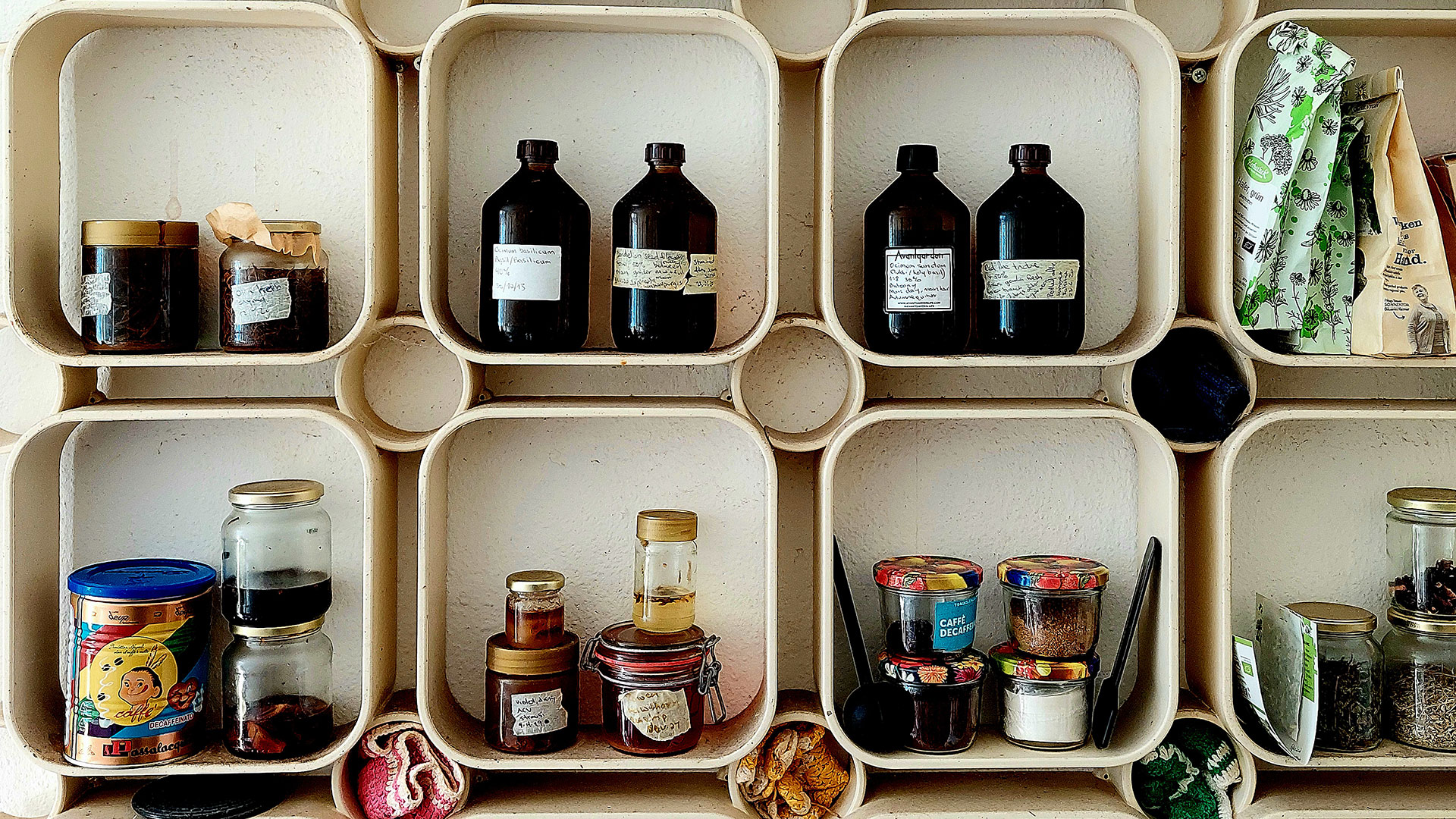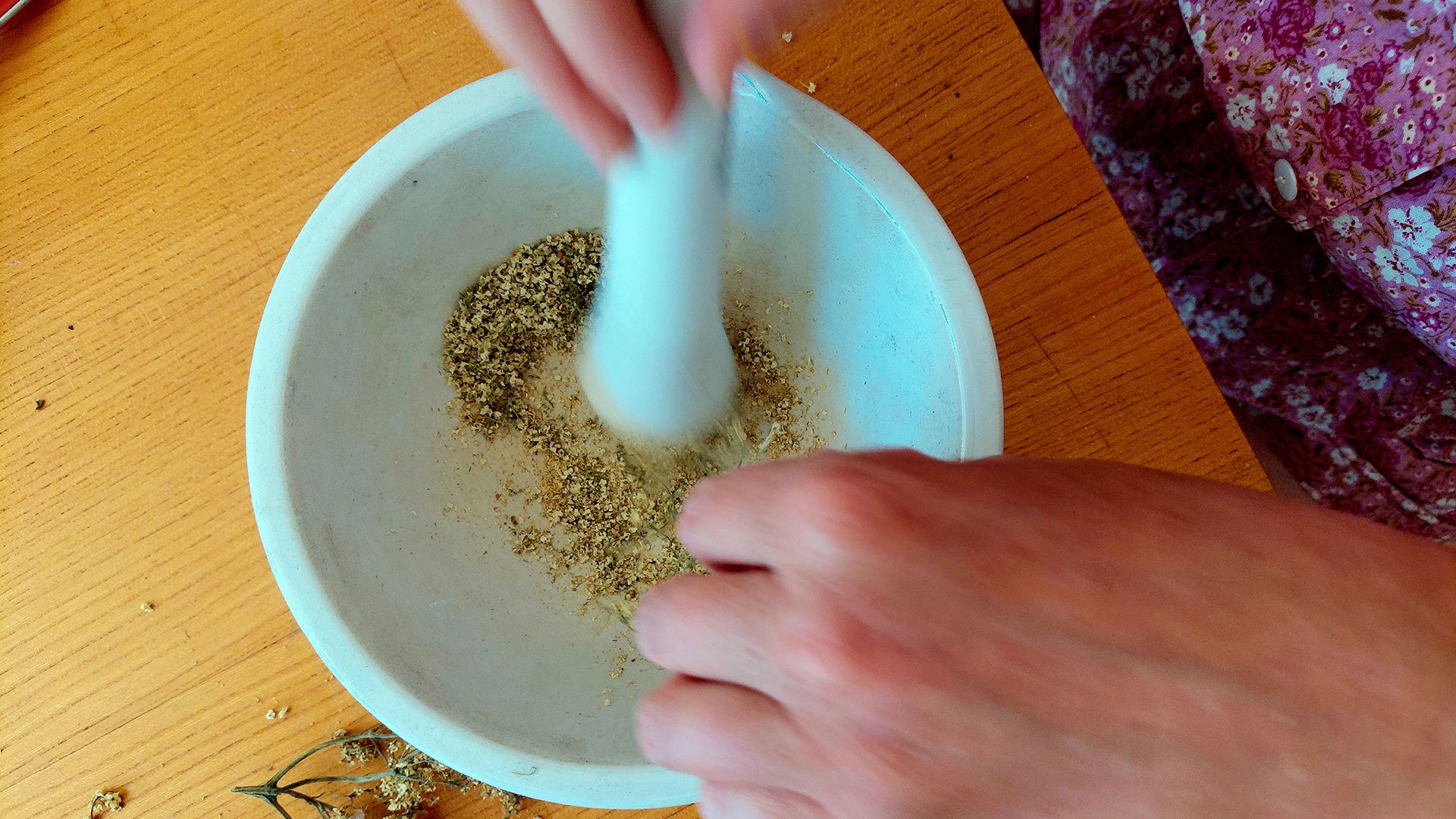As the front door to Tash’s apartment opens, you are overwhelmed by the wafting aromas of elderflower, lavender and the earthy notes of roots. This sensory magic is loudly interrupted with a “hey, how are ya?” delivered in a heavy Australian accent.
The walls of her home are adorned with shelves stacked high with dark tincture bottles and glass jars full of herbs and dried flowers – there are also some books on foraging and other earthy pleasures.

“People like me in Australia are called ‘bush babies’, growing up in the countryside, messing around in the dirt outside, absorbing all that nature has to offer, making our immune systems nice and strong.”
There must have been a few hundred samples of roots, leaves, flowers and berries at home, she says: “I grew up in a very alternative family; I remember we were brewing kombucha before the Western world had even heard of it.”
Born Natasja English, the self-sufficient herbalist is informally known as ‘Tash’ and has lived in Germany since moving there 20 years ago to work as a pattern maker in the fashion industry. “Everyone goes through this phase of rebellion against your parents, but I have never ventured too far away from my love for nature.”
Today she is one of Berlin’s most popular foraging experts, but that didn’t come easy. “I had to do a diploma in Western Herbalism if I wanted to work as a herbalist in Germany, so took a sabbatical from the fashion industry and have never looked back.”
Growing food and health insecurities
Global food insecurity has seen a rise in alternative food production methods and debates around foraging plants and herbs, as well as the nutritional value of certain insects.
In the nearly 50 workshops she conducts in a year, Tash says she has seen a visible concern among the participants not just around global food insecurity but also physical and psychological health.
“That’s why I like to focus on the use of herbs and plants for health reasons. During the coronavirus pandemic, I noticed a very clear spike in people suffering from anxiety and insomnia.”

For our sleep issues, Tash says, we can find answers in linden, lavender, passionflower and valerian root.
Over the past summer, Tash focused on all things elderflower – from syrups to tea to tinctures. Elderflower syrups are a great way to beat the heat, says Tash, while elderflower tea can have a soothing effect during periods of increased stress.
Responsible foraging
Tash’s foraging enterprise, Avant Garden Life, takes people on forest walks and educates them about the value of nature and the respect that it deserves.
She notes that there has been a huge rise in workshop inquiries from major corporations to local schools who see the importance of environmental awareness for young children.
“Children are the best; they are like sponges, absorbing every little detail I give them. It feels so nice because most of the environmental challenges we are seeing today will only get worse when they grow up.”
Participants learn about the land and how it works, what’s endangered and teaches them seasonal foraging habits. However, one of the main underlying messages in her workshops is responsible foraging.
“I want people to understand that they shouldn’t approach nature as a consumer. We’re not walking into the supermarket; we need to work with nature as a friend and always be very respectful.”
Tash berates the notion of over-consumption and calls for a culture of responsibility towards nature.
“People walk into the forest, see an elder tree full of berries and end up picking half of it. What they don’t realise is picking the berries is half the work, which then must be processed, or they will rot and go to waste.”
Her golden rule while foraging is to never take the first one you see or the last, and never take anything when it’s in a very small amount: “After you’re done foraging, you should be able to stand back and have it look as though nothing has changed.”
Tash's elderberryinfused honey recipe:
- Place elderberries into a jar
- Top with honey, ensuring the berries are properly covered
- Leave for one month
- Enjoy a spoonful when cold or flu symptoms appear or throughout the winter to support the immune system
